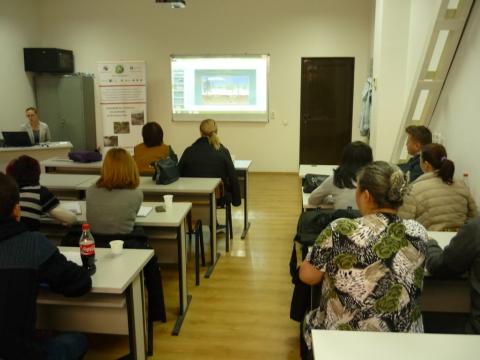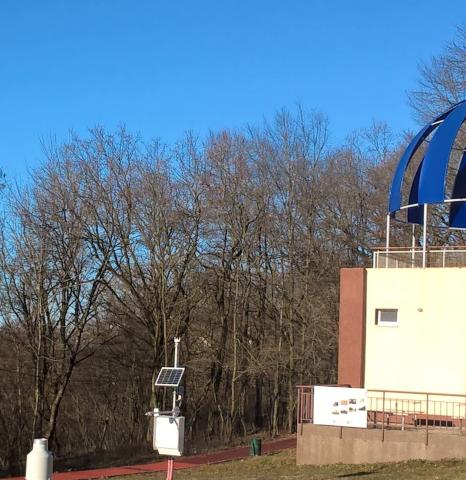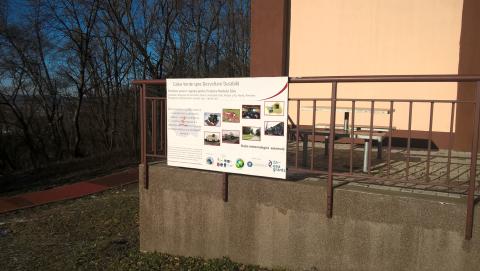Guidelines for adapting agricultural technologies to climate changes in the Region 7 Centre

About this good practice
The analysis of the climate regime in the Region 7 Centre included the study of multiannual data sets of thermal parameters, water, energy, and mechanical parameters by time periods included in the CC timetable to outline the CC that have occurred. The work methodology for achieving the climate analysis for Brașov, Sibiu, Mureș included the processing of meteorological data on thermal and hydrologic indicators - monthly averages for the period 1981-2010 collected by 28 meteorological stations from the NMA database.
The GP evaluates the environmental risks in agriculture through a climatological and agrometeorological study, producing recommendations to adapt agriculture to CC in the region and policies.
The Guidelines were presented in regional training, education and public awareness programs focused on adaptation to climate change, having as focus groups the regional and local authorities, relevant stakeholders, and scientific communities.
Guidelines for adapting agricultural technologies to CC in the Region 7 Centre is an important GP which can be used as a solution that improves the knowledge of farmers and authorities regarding the adaptation of agriculture to climate variability. The monitoring system implemented in this region based on the good practices included in the Guide contributes to reducing the migration of young people from Romanian villages where agriculture is the only means of survival to the cities in search of a job.
Resources needed
20.000,00 EUR, budgeted in the “A Green Way to Sustainable Development” project, RO07 Programme - Adaptation to climate change, financed by funds provided by Iceland, Liechtenstein and Norway via the Financial Mechanism of the European Economic Area (EEA), EEA Grants 2009 – 2014.
Evidence of success
Based on the developed Guidelines for adapting agricultural technologies to climate changes in the Region 7 Center proceeded with the purchase and installation of 3 automatic weather stations for an integrated on-line meteorological data system implemented to monitor meteorological and agrometeorological parameters in Sibiu, Brasov and Mures counties for the assessment of the impact of extreme events on agriculture, the implementation of local/regional strategies regarding adaptation to CC.
Potential for learning or transfer
CC increasingly affect agriculture, water resources, energy, tourism, infrastructure, health, etc., the impact on socio-economic activity being determined both by changes in the average climate regime and by the increase in intensity, frequency, and the duration of extreme meteorological phenomena (heat waves, droughts, episodes of heavy precipitation, etc.). The tools based on the simulation of climate data coupled with "weather-harvest" agro-climatic models are used to quantify the possible effects of climate change on the agricultural production process.
Considering the important role of local and central authorities from Romania to identifying and implementing adaptation measures at national and local levels, it is considered that the Romanian GP could be replicated to the other countries from consortium also together with the necessary of increasing the awareness of authorities and the public, and to modify the behaviour of economic operators and population accordingly.




